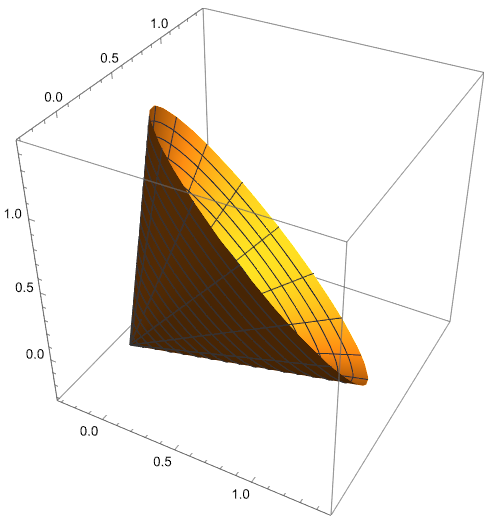$\newcommand\R{\mathbb R}$The answer is no.
Let us use the terms "acute angle" and "positive" in the nonstrict sense, meaning "angle $\le\pi/2$" and $\ge0$, respectively. The "strict" modification should be straightforward. By approximation, we may also assume that the set of vectors is allowed to be infinite.
Now, for any vector $u$ in $\R^d$ ($d\ge3$) with Euclidean norm $|u|=1$, consider the set
$$S_u:=\{u+v\colon\, v\in\R^d,|v|=1,v\cdot u=0\},$$
with $\cdot$ denoting the dot product. (One may note that $S_u$ is the unit-radius circle in $\R^d$ centered at $u$ and lying in the affine plane through $u$ perpendicular to $u$.)
Then for any vector $u+v\in S_u$ the angle between $u+v$ and $u$ is $\pi/4$ and hence, by the subadditivity of the angle measure, the angle between any two vectors in $S_u$ is acute. One can also show this algebraically: For any $u+v$ and $u+v'$ in $S_u$, we have $(u+v)\cdot(u+v')=1+v\cdot v'\ge0$, by the Cauchy--Schwarz inequality.
Moreover, any rotation of $S_u$ is of the same form, $S_u$, but maybe for another unit vector $u$.
It remains to show that $S_u\not\subseteq\R_+^d$ for any unit vector $u$. Take indeed any such vector $u=(u_1,\dots,u_d)$. Without loss of generality, $|u_1|$ is the smallest of all the $|u_j|$'s, so that $$|u_1|-\sqrt{1-u_1^2}<0.$$ Let now $$v=(v_1,\dots,v_d):=\Big(-\sqrt{1-u_1^2},\frac{u_1u_2}{\sqrt{1-u_1^2}},\dots,\frac{u_1u_d}{\sqrt{1-u_1^2}}\Big).$$ Then $u+v\in S_u$. However, $u_1+v_1<0$, so that $S_u\not\subseteq\R_+^d$. $\quad\Box$
The picture below shows the set $[0,1]S_u=\{tw\,\colon t\in[0,1],w\in S_u\}$ for $d=3$ and (the apparently "best") unit vector $u=\frac1{\sqrt3}\,(1,1,1)$. It is kind of seen that $[0,1]S_u\not\subseteq\R_+^d$ and hence $S_u\not\subseteq\R_+^d$.

